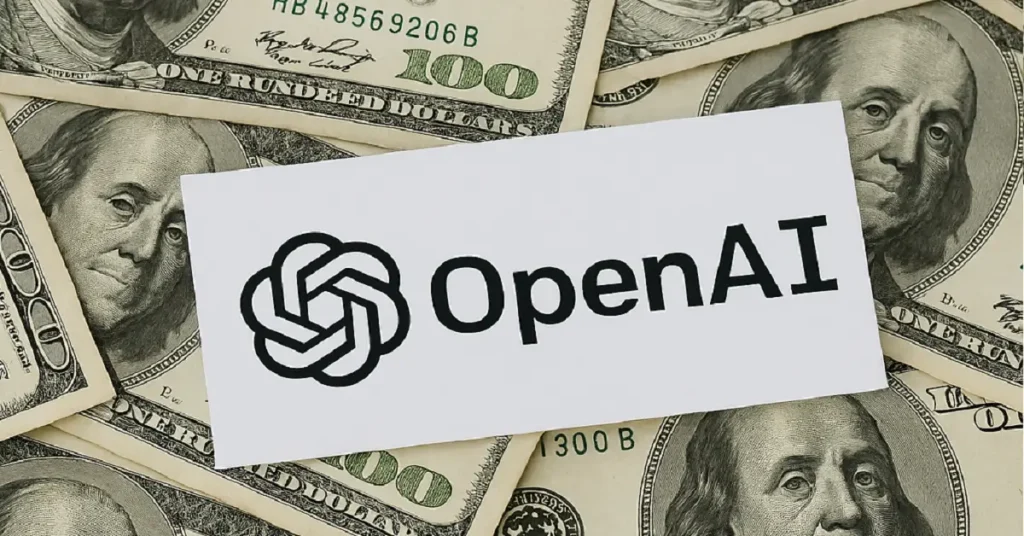OpenAI valuation hits $500 billion in a $6 B employee stock sale. Learn how GPT-5 hype, SoftBank cash, and retail backdoors could reshape your 2025 portfolio.
Picture waking up to headlines screaming that OpenAI valuation just ballooned to half-a-trillion dollars—before the company has even turned a profit. Sounds wild, right? Yet that’s exactly the buzz in March 2025 as insiders line up a $6 billion secondary share sale. Below, the full story is unpacked: who’s cashing out, why it matters to everyday investors, and the smart moves to consider before the next price jump.
The $500-Billion Valuation: How We Got Here
Less than three years after ChatGPT’s late-2022 debut, OpenAI has sprinted from research darling to financial juggernaut:
- March 2024: $40 B round at a $300 B valuation—already the largest private tech raise ever.
- Early March 2025: Another $8.3 B fresh cash to fuel GPT-5 compute.
- Now: Secondary sale targeting a jaw-dropping $500 billion OpenAI valuation.
Each leap came with soaring user numbers—700 million total, 20 million paying—and a burn rate that still outpaces revenue. Translation: insiders want liquidity before the IPO window narrows.
Who’s Selling and Who’s Buying
Sellers: Early Employees and Departed Founders
Engineers who joined in 2016 now hold equity worth tens of millions on paper. Secondary sales let them diversify without waiting for a public listing that may not arrive until 2027.
Buyers: SoftBank, Dragoneer, Thrive Capital
According to CNBC sources:
- Thrive Capital may lead the round—mirroring its 2023 Twitter-purchase playbook.
- SoftBank Vision Fund 2 wants a bigger AI slice to balance its Arm windfall.
- Dragoneer brings late-stage growth expertise from Snowflake and Uber days.
Practical tip: Retail investors can’t join the secondary, but watch SoftBank’s 9984.T tick—the fund often leaks hints via earnings slides.
GPT-5: The Rocket Fuel Behind the Price Tag
Hot on the heels of the funding news, OpenAI unveiled GPT-5 last week. Benchmark leaks show:
- 18 % faster code generation
- 42 % fewer hallucinations in medical QA
- Plug-and-play “healthcare mode” for hospitals
Early-access users on X report the model writes entire React apps in under 30 seconds—perfect marketing ammo for the next funding deck.
What This Means for Regular Investors
1. Indirect Exposure Through ETFs
While you can’t buy OpenAI shares on Robinhood yet, **AI-themed ETFs** like BOTZ or ARKQ already hold SoftBank and Microsoft—both deeply linked to OpenAI’s upside.
2. Pre-IPO Liquidity Platforms
EquityZen and Forge Global list fractional shares for accredited investors, but **minimum tickets hover around $50 k** and pricing often carries a 10–15 % premium.
3. Watch the Lock-Up Calendar
Once the secondary closes, insiders typically face a six-month lock-up. Expect volatility spikes when that window opens—historically a **dip-and-rip pattern** in high-demand tech names.
Risk Checklist Before You FOMO In
Risk Factor |
Mitigation Tactic |
| Over-valuation vs. revenue |
Track revenue multiples vs. Snowflake at IPO
|
| Regulatory crackdown on AI |
Diversify across non-US AI ETFs
|
| GPT-5 rollout delays |
Set Google Alerts for “GPT-5 access issues”
|
Quick Action Plan for 2025
- Open a watchlist with MSFT, NVDA, and SoftBank for proxy exposure.
- Follow @OpenAIUpdates on X for real-time employee share rumors.
- Join the wait-list for EquityZen’s OpenAI pool—approval can take 48 hours.
Bottom Line: Ride the Wave, Not the Hype
The **OpenAI $500 billion valuation** is more than a headline—it’s a signal that AI’s biggest winner is sprinting toward an IPO finish line. Whether you’re a curious retail trader or a tech-savvy saver, now is the moment to map out an indirect route before the gates swing wide open.
What’s your move—sit on the sidelines or start building that proxy portfolio? Share your strategy in the comments and snag the free benchmark sheet above before GPT-6 steals the spotlight!
Join the Chat:
Discord Channel for Live Alerts

